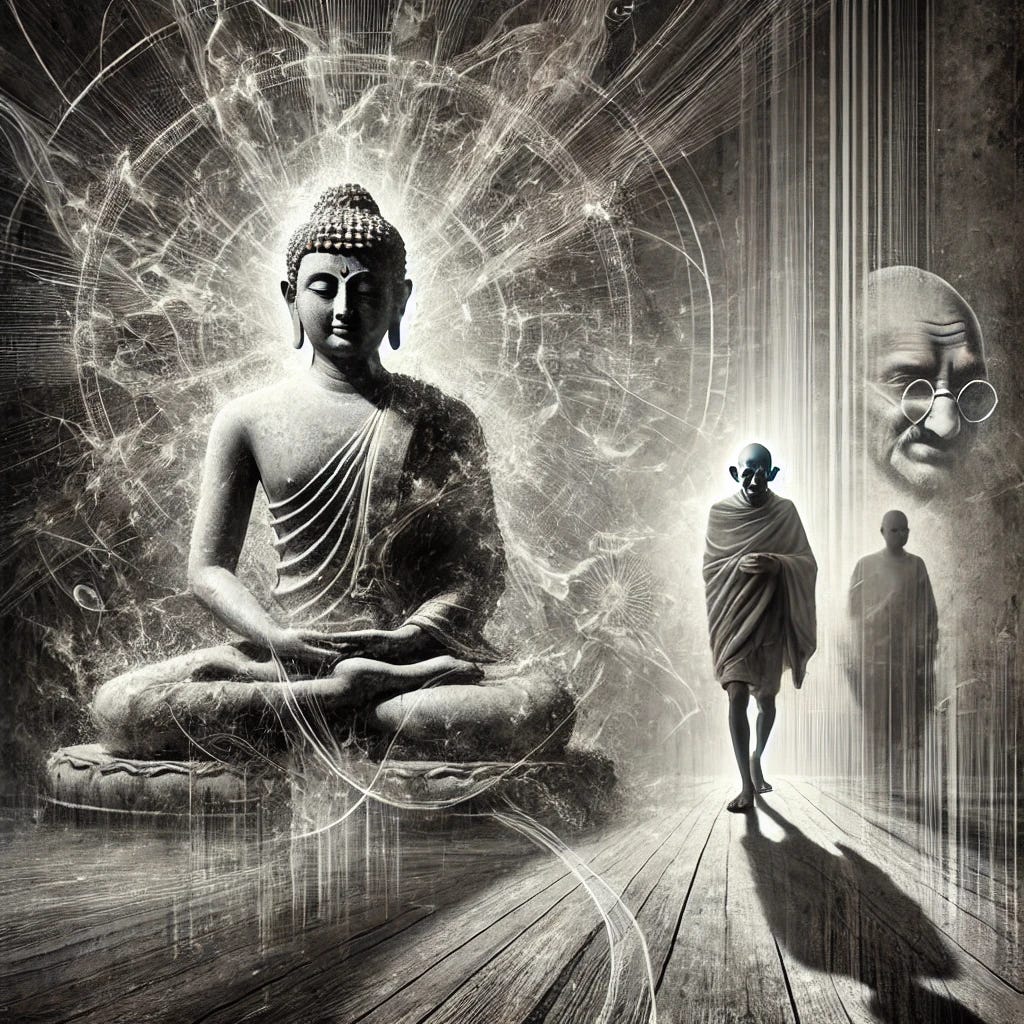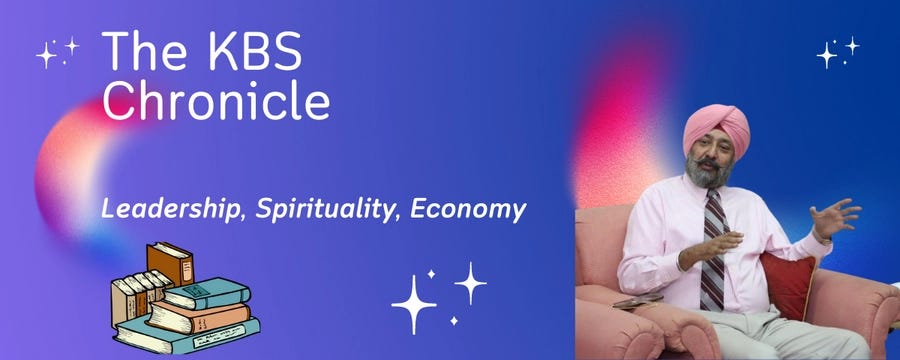The Complex Relationship Between Truth and Honesty
The concepts of truth and honesty, while closely related, do not always go together. They intersect in many ways but also diverge in significant aspects. Truth is often considered an absolute, aligning with objective reality, while honesty is more subjective, rooted in one's intentions and personal integrity. As Mahatma Gandhi once said, "An error does not become truth by reason of multiplied propagation, nor does truth become error because nobody sees it." This highlights the complex relationship between truth and perception. Similarly, Buddha's teachings emphasize the importance of right speech, which encompasses both truth and the intention behind it. He said, "Three things cannot be long hidden: the sun, the moon, and the truth." This underscores the enduring nature of truth, irrespective of human perception and honesty.
Here’s our humble discussion:
Truth
Truth refers to the quality or state of being in accordance with fact or reality. It is an objective concept, often seen as absolute, though perceptions of truth can vary based on individual beliefs, cultural contexts, and available information. Philosophically, truth is often debated in terms of its nature (objective vs. subjective) and its criteria (correspondence, coherence, pragmatic).
Honesty
Honesty, on the other hand, is a personal trait that involves being truthful, sincere, and free from deceit or fraud. It is more subjective and rooted in one's intentions and actions. Honesty is often seen as a moral or ethical virtue, guiding individuals to communicate and act in ways that are transparent and trustworthy.
Intersection of Truth and Honesty
Alignment in Ideal Situations: In an ideal situation, truth and honesty go hand in hand. An honest person strives to tell the truth, providing information that aligns with reality as they understand it. This alignment is essential in building trust, fostering relationships, and maintaining integrity.
Transparency and Trust: Honesty involves a commitment to transparency and trustworthiness. When someone is honest, they provide accurate and truthful information, contributing to a clearer understanding of reality.
Divergence of Truth and Honesty
Incomplete Knowledge: An individual can be honest but not necessarily convey the full truth due to incomplete knowledge. For example, someone might genuinely believe in a fact and share it honestly, even if it later turns out to be false. Here, the person’s honesty doesn’t align with the truth.
Situational Ethics: In certain situations, being entirely truthful might cause harm. For example, a doctor might withhold a harsh diagnosis temporarily to protect a patient's emotional state, acting out of a sense of compassion rather than dishonesty. This raises questions about the ethics of truth-telling versus the intent behind honesty.
White Lies: Sometimes, small lies or omissions, often called "white lies," are told to avoid hurting someone’s feelings or to manage social situations gracefully. While not truthful, such actions can be seen as honest in their intention to prevent harm or maintain harmony.
Cultural Contexts: Different cultures have varying standards for truth and honesty. What is considered a minor omission or a polite exaggeration in one culture may be seen as dishonest in another. Thus, cultural context can cause a divergence between the truth and perceived honesty.
The Blurring Lines of Truth in the Age of Deepfakes and AI
In the digital age, the advent of deepfakes, AI-generated videos, and voice clones has further complicated the relationship between truth and honesty. These technologies can create highly realistic but entirely fabricated audiovisual content, making it increasingly difficult to distinguish between what is real and what is artificially constructed. This blurring of lines challenges our conventional understanding of truth, as even the most convincing evidence can be manipulated.
Consequently, honesty becomes a critical virtue, as individuals must navigate this landscape with a commitment to transparency and integrity. However, the potential for misuse is significant, with nefarious actors able to deceive and manipulate public perception, raising ethical concerns about the future of truth in a technologically advanced society.
Reconciliation
Intention and Context: Understanding the intent behind honesty and the context in which truth is presented helps reconcile the two concepts. An honest intention, even when not fully aligned with objective truth, often maintains moral integrity.
Continuous Learning: Emphasising continuous learning and openness to new information helps align honesty with truth over time. By being open to correcting oneself and updating one’s beliefs, the gap between truth and honesty can be minimized.
Ethical Frameworks: Employing ethical frameworks that balance truth-telling with compassion and situational awareness can guide individuals in navigating complex scenarios where truth and honesty might diverge.
Summing Up
Truth and honesty are intertwined but not synonymous. While truth is an objective state of being, honesty is a subjective personal virtue. They often go together, as honesty ideally involves telling the truth, but they can diverge in situations involving incomplete knowledge, ethical dilemmas, and cultural differences. In today's digital age, the emergence of deepfakes and AI-generated content further complicates this relationship, blurring the lines between reality and fabrication. Understanding the nuances of both concepts, especially in the face of such technological advancements, allows for a more compassionate and ethical approach to communication and relationships. By emphasising honesty and fostering critical thinking, we can navigate the challenges posed by these new technologies and strive to uphold the integrity of truth in our interactions.
If you believe this article would interest someone you know, please feel free to share it anonymously (for us), using any platform that you prefer.




ਸਚਾਈ ਅਤੇ ਸੁਹਿਰਦਤਾ ਮਨੁੱਖ ਦੇ ਅਸਲੀ ਗਹਿਣੇ ਹਨ ਜਿਸ ਕੋਲ ਦੋਵੇਂ ਹੋਣ ਉਸ ਨੂੰ ਪ੍ਰਮਾਤਮਾ ਰੂਪ ਕਿਹਾ ਜਾਂਦਾ ਹੈ।
ਬਾਹਰੋਂ ਵੇਖਣ ਨੂੰ ਤਾਂ ਮੇਰੇ ਵਰਗਾ ਹਰ ਬੰਦਾ ਹੀ ਇਹਨਾਂ ਦੋਵਾਂ ਦਾ ਧਾਰਨੀ ਹੋਣ ਦਾ ਪ੍ਰਚਾਰ ਕਰਦਾ ਹੈ ਪਰ ਸਚਾਈ ਇਹ ਹੈ ਕਿ ਉਹ ਇਹਨਾਂ ਤੋਂ ਕੋਹਾਂ ਦੂਰ ਹੁੰਦਾ ਹੈ। ਹੋ ਸਕਦਾ ਹੈ ਕਿ ਜੀਵਨ ਕਾਲ ਵਿੱਚ ਕੋਈ ਮਿਲ ਵੀ ਜਾਵੇ ਜੀ।
ਨਿਸ਼ਾਨ ਸਿੰਘ ਕਾਹਲੋਂ